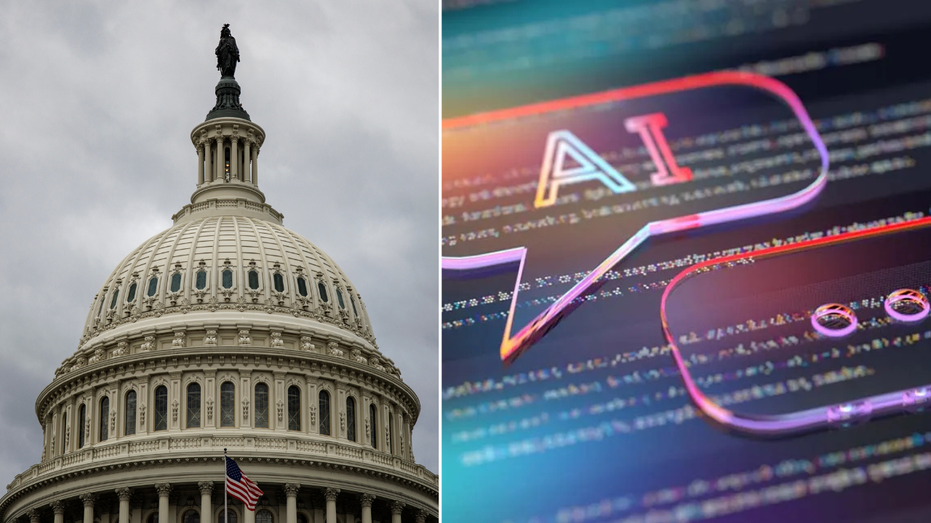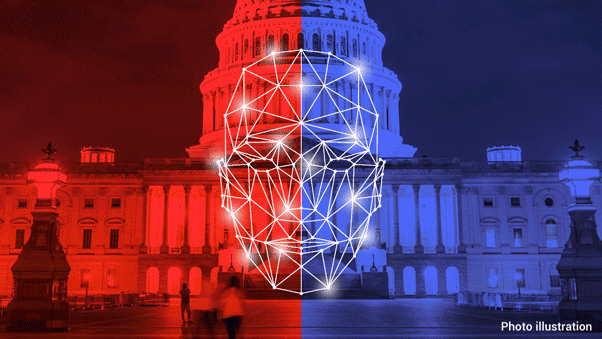VC's healthcare predictions for 2025: more M&A, fierce competition in AI, and a health insurance shake-up under Trump

Nudphon Phuengsuwan/Getty Images
- After a slower-than-anticipated year for healthcare funding, investors expect sunnier skies in 2025.
- 13 VCs from firms like ICONIQ Growth and AlleyCorp share their predictions for digital healthcare next year.
- They expect more M&A, funding for AI agents and clinical decision support, and Medicare shake-ups.
The healthtech sector will see more private-equity-backed M&A and a fierce battle between AI-scribing startups next year, according to thirteen investors in the healthcare VC market.
At the beginning of the year, healthcare venture capital appeared poised for a rebound. Investors hoping to do deals again after a two-year funding drought watched as healthcare startups flooded back to the market to grab more cash.
Those VCs raced to break out their checkbooks for hot new AI startups in the first quarter, from scribing startups like Abridge to automated prior authorization players like Cohere Health.
A confluence of macroeconomic factors — from still-high interest rates to fundraising struggles for venture firms to the uncertainty of a looming presidential election — dampened the anticipated resurgence. 2024's funding appears to be, at best, on pace with 2023 levels, with $8.2 billion raised by US digital health startups in the first three quarters of this year compared to $8.6 billion through Q3 2023, per Rock Health.
Now, with interest rates expected to drop and a new administration on the way, VCs are anticipating sunnier skies in 2025.
A pickup in healthcare M&A and IPOs
After a slow year for healthcare M&A, investors want to see more deals in 2025.
With interest rates expected to come down — and investors facing pressure to deploy capital — private equity buyers should be more active in 2025, said .406 Ventures managing director Liam Donohue.
And Flare Capital Partners' Parth Desai said he's already seeing private-equity-backed healthcare companies looking to buy smaller startups. Their goal, as he understands it, is to make tuck-in acquisitions in 2025 that improve their growth stories as they look ahead to potential IPOs in 2026.
"Maybe they're not phenomenal outcomes, but at the end of the day, they'll create some liquidity," Desai said of those acquisitions. "I expect that to be one of the first exit windows starting to manifest in 2025."
Investors were hopeful but unsure that the IPO window would meaningfully reopen for digital health startups in 2025, despite startups like Hinge Health and Omada Health signaling their intentions to test the public markets.
Venrock partner Bryan Roberts said he expects the healthcare IPO market to remain relatively quiet. LRV Health managing partner Keith Figlioli suggested we won't see IPO activity kick off until the second half of the year after other exit windows open.
VCs said they're mostly looking for smaller deals next year, from mergers of equals to asset sales. Figlioli and Foreground Capital partner Alice Zheng said we'll see even more consolidation and shutdowns in digital health next year as startups run out of cash.
"Investors will have to make tough decisions on their portfolio companies," Zheng said. "We want to support all of them, but we can't indefinitely."

Foreground Capital
Healthcare AI competition will get fierce
Healthcare startups using AI for administrative tasks were easily the hottest area of healthcare AI investment in 2024. Investors think the crop of well-funded competitors will face increasing pressures next year to expand their product lines.
ICONIQ Growth principal Sruthi Ramaswami said she expects the group of AI scribing startups that landed big funding rounds this year, from Abridge to Ambience Healthcare to Suki, to scale significantly next year using the fresh cash as hospitals scramble for solutions to the healthcare staffing shortage.
As these startups scale, however, they'll face pressure to expand beyond ambient scribing into other product lines, like using AI for medical coding and billing, said Kindred Ventures managing partner Kanyi Maqubela. Scribing technology could become a commodity sooner than later, with many providers trying free off-the-shelf scribing software rather than contracting with startups, Maqubela said.
"It'll be a race to who can start to build other services and build more of an ecosystem for their provider customers," he said.

Kindred Ventures
Some AI startups, like Abridge, have already been vocal about their plans to expand into areas like coding or clinical decision support. The best-funded AI scribing startups may be able to acquire smaller startups to add those capabilities, but other scribing companies will be more likely to get bought out, Maqubela said.
Flare Capital Partners' Desai suggested that healthcare companies already focused on RCM will try to pick up scribing solutions as the tech becomes a must-have for hospitals. He pointed to Commure's $139 million take-private acquisition of Augmedix in July.
Ramaswami said that demonstrating a high return on investment would be critical for these startups as hospitals pick their favorites among various AI pilots.

Iconiq Growth
Health insurance in flux in Trump's second term
While many VCs quietly celebrated the potential for more M&A and IPOs in 2025 following Trump's election in November, the incoming administration could bring some big shake-ups for healthcare markets.
Trump could move to boost private health insurers, including Medicare Advantage plans, in his second term, Venrock's Roberts said. That could be a boon for young insurers like Devoted Health and Alignment Healthcare fighting for Medicare Advantage market share, as well as startups contracting with insurers to improve healthcare payment processes.
He suggested the new administration may even roll back changes made in the Center for Medicare and Medicaid Services' latest reimbursement model for Medicare, which went into effect this year and resulted in lower payments for many Medicare Advantage plans in the agency's attempt to improve payment accuracy.
Brenton Fargnoli, a general partner at AlleyCorp, said he expects to see health insurers respond to these risk adjustment changes and move to control higher-than-expected medical costs over the past year by launching a bevy of new value-based care partnerships in 2025 for specialties, including oncology, cardiology, and musculoskeletal care.

AlleyCorp
Some healthcare experts are also concerned that the federal government could cut funding for Medicaid plans. These changes could force states to scramble for new strategies and potentially new partnerships to control healthcare costs for their Medicaid populations.
"If there is a significant shift in direction at the federal level, I think you're going to see certain states do much more than they have in the past to try to continue to address health disparities," said Jason Robart, cofounder and managing partner of Seae Ventures. "As it happens, that creates opportunities for private companies to leverage their innovative solutions to address the need."
Similarly, Muse Capital founding partner Rachel Springate said that while investors in reproductive health startups will be closely watching state-level regulatory changes that could impact their portfolio companies, those startups could see surges in consumer demand as founders step up to fill gaps in reproductive care access.
Some of the Trump administration's proposed moves could stunt progress for health and biotech startups by stalling regulatory oversight. Robert F. Kennedy Jr., Trump's pick to lead Health and Human Services, has said he wants to overhaul federal health agencies, including the Food and Drug Administration and the National Institutes of Health. Marissa Moore, a principal at OMERS Ventures, said the promised audits and restructuring efforts could lead to major delays in critical NIH research and FDA approvals of new drugs and medical devices.

Muse Capital
What's hot in AI beyond scribes
In 2025, AI will be an expectation in healthcare startup pitches, not an exception, said Erica Murdoch, managing director at Unseen Capital. Startups have pivoted to position AI as a tool for improved efficiency rather than as their focal point — and any digital health startups not using AI, in turn, will need a good reason for it.
With that understanding, investors expect to see plenty more funding for healthcare AI in 2025. While many tools made headlines this year for their ability to automate certain parts of healthcare administration, .406 Ventures' Donohue and OMERS Ventures' Moore said they expect to see an explosion of AI agents in healthcare that can manage these processes autonomously.
Investors remain largely bullish about healthcare AI for administrative tasks over other use cases, but some think startups using the tech for aspects of patient diagnosis and treatment will pick up steam next year.
"We will begin to see a few true clinical decision support use cases come to light, and more pilots will begin to test the augmentation of clinicians and the support they truly need to deliver high quality, safe care," said LRV Health's Figlioli. He hinted the market will see some related funding announcements in early 2025.
Moore said she's also expecting to see more investments for AI-driven mental health services beyond traditional cognitive behavioral therapy models — "for example, just today I got pitched 'the world's first AI hypnotherapist."
Dan Mendelson, the CEO of JPMorgan's healthcare fund Morgan Health, said he's watching care navigation startups from Included Health to Transcarent to Morgan Health's portfolio company Personify that are now working to improve the employee experience with AI. The goal, he says, is for an employee to query the startup's wraparound solution and be directed to the right benefit via its AI, a capability he says he hasn't yet seen deployed at scale.
"These companies are racing to deploy their data and train their models, and we'd love to see a viable product in this area," he said.


